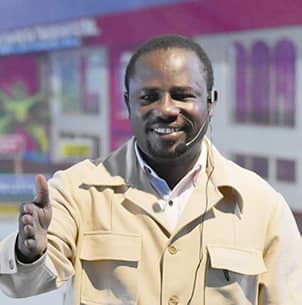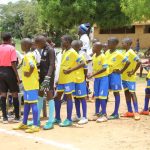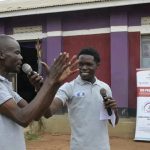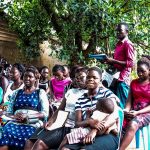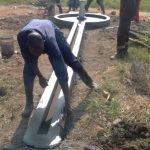VISIONARY LEADERSHIP AND YOUTH MENTORSHIP:
THE GUARANTEE FOR LANGO’S FUTURE
By Dr. Morris Chris Ongom, CEO GLOFORD Uganda & Director Chamber of Commerce, Lango Region
A defining moment for our region
Lango stands at a crossroads now. We must decide whether to continue with leadership that prioritizes short-term personal gains or embrace a transformative vision that will secure the prosperity of our region for generations to come. The choice we make today will determine whether Lango thrives as a politically and economically powerful region or remains trapped in cycles of stagnation and missed opportunities.
If we are serious about guaranteeing the future of Lango, we must invest in youth leadership development and mentorship. Without this, our region will continue to suffer from weak governance, economic decline, and a lack of representation in national decision-making. Strong institutions are built by strong leaders—and strong leaders are not born; they are developed through deliberate investments in mentorship, education, and exposure to visionary leadership.
As Martin Luther King Jr. once said, “The function of education is to teach one to think intensively and to think critically. Intelligence plus character—that is the goal of true education.” This should be our guiding principle as we prepare young leaders who will champion the transformation of Lango.
History proves that visionary leadership transforms nations
Throughout history, the greatest transformations have been led by leaders who were mentored, trained, and supported in their youth. They were prepared for leadership long before they assumed office.
Singapore’s rise under Lee Kuan Yew
Singapore moved from a struggling post-colonial state to a global economic powerhouse under the visionary leadership of Lee Kuan Yew. But this did not happen by chance. Lee invested in building young leaders, fostering discipline, and nurturing a culture of integrity. Today, Singapore continues to thrive because leadership development was institutionalized.
Uganda’s leadership under President Museveni
Museveni’s long-term vision for Uganda has always included youth leadership development. His government has launched numerous youth-focused initiatives in education, business, and governance, ensuring that Uganda remains competitive in East Africa. However, while the national government has made efforts to empower young people, Lango has failed to develop its own leadership pipeline.
President Museveni has often said, “The future belongs to those who prepare for it today.” If Lango does not act now, we will continue to lag behind as other regions move forward with well-prepared, well-groomed, and well-connected young leaders who will dominate Uganda’s future politics and economy.
Rwanda’s transformation under Paul Kagame
After the 1994 genocide, Rwanda could have remained a failed state. Instead, Paul Kagame and his team focused on investing in young leaders through leadership training, education, and business incubation. Today, Rwanda is one of Africa’s fastest-growing economies and a model of governance, largely because its leadership succession is based on competence rather than patronage.
The crisis in Lango: Where are our future leaders?
Lango was once a cradle of leadership. From Dr. Apolo Milton Obote, who led Uganda to independence, to strong regional leaders who shaped governance and development, our region has historically produced thinkers and statesmen and stateswomen. Today, that legacy is under threat.
Our young people are disconnected from political and economic power.
§ There are no structured mentorship programs to groom the next generation of leaders.
§ The current leadership focuses on personal survival rather than institutionalizing leadership development.
§ Young people are being used as political tools rather than being prepared for governance.
This must change. If we do not deliberately train and mentor young leaders, Lango will not have a future in Uganda’s political and economic transformation.
Dr. Apolo Milton Obote, Uganda’s first prime minister and a proud son of Lango, once said: “The only way to make progress is to plan for it and work for it.” But where is the plan for Lango’s future? Where is the effort to groom competent leaders who will carry our region forward?
A call to action: Investing in youth leadership now
To ensure the future of Lango, we must adopt a deliberate strategy to train and mentor young leaders. This should involve:
1. Establishing a leadership and governance institute for young people
Lango needs a formal institution that identifies, trains, and mentor future leaders—not just politicians, but also business leaders, community organizers, and policy experts. This will ensure that every election cycle brings in fresh, competent, and well-prepared leaders.
2. Mentorship programs led by senior leaders
We must bridge the gap between the current generation of leaders and the youth. Experienced politicians, businesspeople, and academicians should actively mentor young leaders, sharing knowledge and experience while guiding them into leadership roles.
3. Youth representation in decision-making
Young people must have a seat at the table. Whether in local government, business chambers, or national policymaking, young leaders should not be spectators but active participants in shaping Lango’s future.
4. Investment in Youth-Led Enterprises (YLEs)
Economic empowerment is a key part of leadership development. A region or a nation that does not create opportunities for its youth will always suffer from brain drain and economic stagnation. Lango must prioritize funding and mentorship for young entrepreneurs, ensuring that they become job creators rather than job seekers.
5. Restoring the culture of Value-Based Leadership (VBL)
Our region must return to the principles of integrity, service, and accountability. We need to revive a leadership culture based on vision, not personal gain. If our young leaders are mentored in this tradition, Lango will be guaranteed a prosperous future for generations.
What happens if we do nothing?
If we fail to act now, the future of Lango will be bleak
Lango’s political influence will continue to decline as other regions groom leaders who will dominate national decision-making.
2. Economic opportunities will shrink, and our young people will continue migrating to Kampala and abroad in search of better prospects.
3. Our history of leadership will become irrelevant, and future generations will look back at us as the ones who failed to invest in the future.
Albert Einstein once warned, “The world as we have created it is a process of our thinking. It cannot be changed without changing our thinking.” If we continue with business as usual, nothing will change for Lango. It is time to think differently and act boldly.
A Challenge to Lango: Step up or Step aside
The time for empty politics and short-term survival tactics is over. Lango must return to the politics of ideas, and this will only happen if we invest in young leaders who will carry the region into the future.
John F. Kennedy famously said, “Ask not what your country can do for you—ask what you can do for your country.” This is the mindset we must instill in our young leaders. Leadership should not be about self-enrichment but about service, sacrifice, and the pursuit of a better future for all.
Conclusion: The future of Lango is in our hands
The politics of ideas must return to Lango. The only way to secure the future of our region is by deliberately grooming a new generation of visionary, competent, and value-driven leaders. The 2026 elections and beyond should not be about individuals but about a generational shift in leadership thinking.
Lango must not be left behind as Uganda advances. Now is the time to act. Now is the time to invest in youth leadership. Now is the time to guarantee our future.


